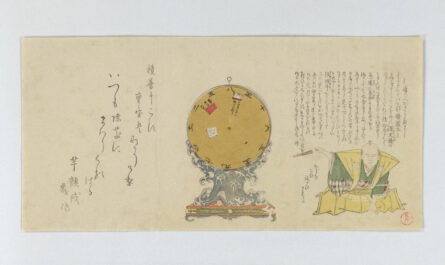An event jointly organized by Helmut Hofer and Akshay Venkatesh, IAS, School of Mathematics, Sonja Brentjes and Karen Parshall, AIHS-IAHS, and June Barrow-Green, ICHM.
This event is meant to be the first in a series of activities that aim to build cooperation on the history of modern mathematics between the School of Mathematics at IAS, AIHS-IAFS, and ICHM.
It combined a talk on a new research project on the history of finite simple groups by Rebcca Waldecker (Department of Mathematics, Martin Luther University Halle-Wittenberg) and Volker Remmert (Interdisciplinary Center for Science and Technology Research, Bergische Universität Wuppertal) with a panel discussion moderated by Alma Steingart (Department of History, Columbia University). Participants in the conversation were Helmut Hofer, Volker Remmert, Akshay Venkatesh, and Rebecca Waldecker.
The meeting was opened by Sonja Brentjes, president of AIHS-IAHS. Karen Parshall, the AIHS-IAHS representative responsible for the cooperative effort with the colleagues of the School of Mathematics, first presented a letter to Helmut Hofer announcing the gift of the six volumes of the Cultural History of Mathematics, edited by David Rowe and Joseph Dauben, to IAS by the publisher Bloomsbury. This gift was made possible through the mediation of David Rowe. Then, Karen Parshall introduced the two speakers to those in the room as well as to the online participants. Altogether, about 85 mathematicians and historians of mathematics came to the talk. Most of them also listened to the panel conversation.
Volkert Remmert and Rebacca Waldecker described their research goals, namely, to answer these main questions:
- Was research on the classification of finite simple groups an example of “Big Science” in mathematics? If yes, then further questions are suggested, among them why and how such a new development occurred.
- Why did various military institutions fund this research in pure mathematics? What expectations did they have? How did the mathematicians regard this military sponsorship?
- How did the larger than usual scope of the project challenge and change standards of proof, and what role did computers play in this change?
- Why did some contributors to the project consider the goal achieved, while this turned out not to be the case? Why did mathematicians engage with the history of mathematics when debating this claim?
- Should the history of mathematics play a role in ongoing mathematical research and how can mathematicians and historians of mathematics cooperate productively?
The panel discussion picked up some of these questions, focusing on the mathematicians’ experiences with the histories of different parts of their discipline and the difficulties mathematicians face when they wish to do research in the history of their field. It also considered the following questions: for what tasks may mathematicians need a greater familiarity with past mathematics, and at what moments have mathematicians expressed anxiety about the state of their discipline and the directions of its evolution.
All organizers, the speakers, and the moderator expressed their satisfaction with the event and their readiness for further cooperation.

